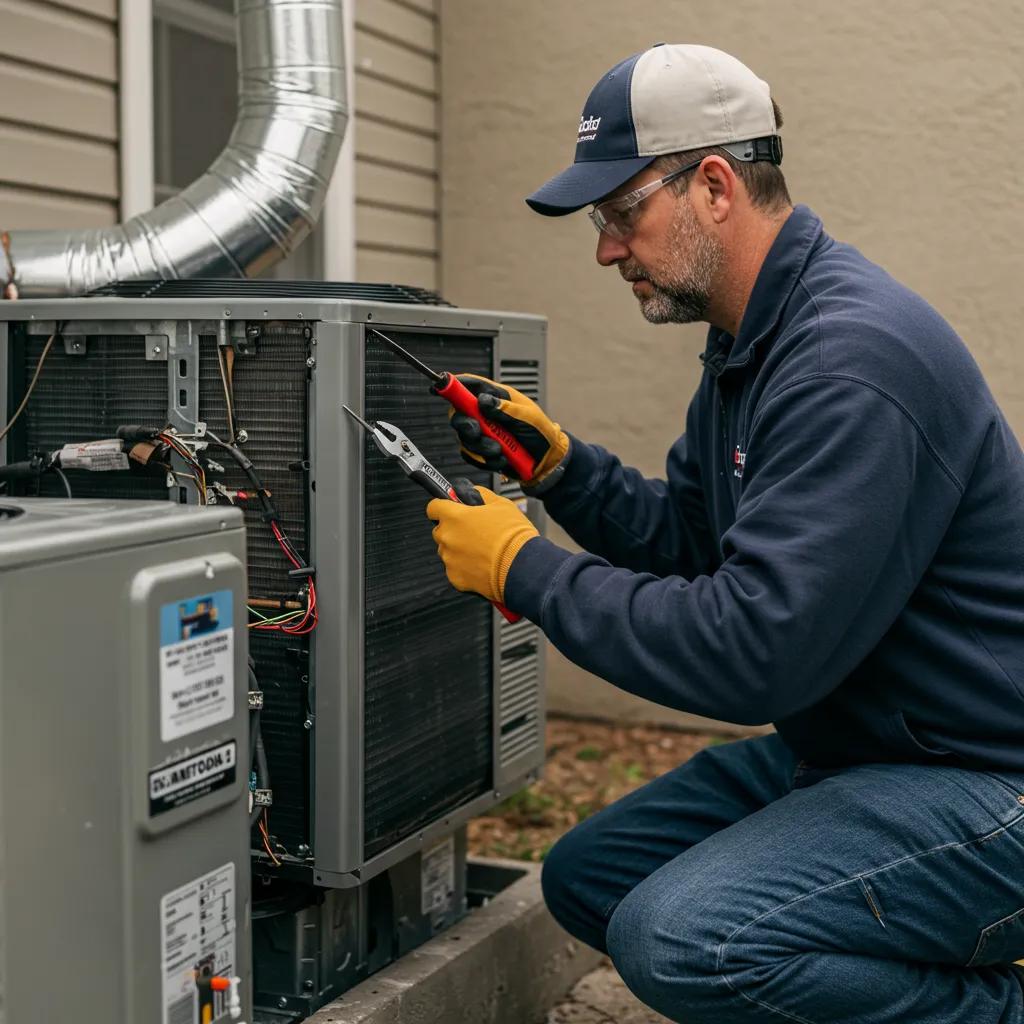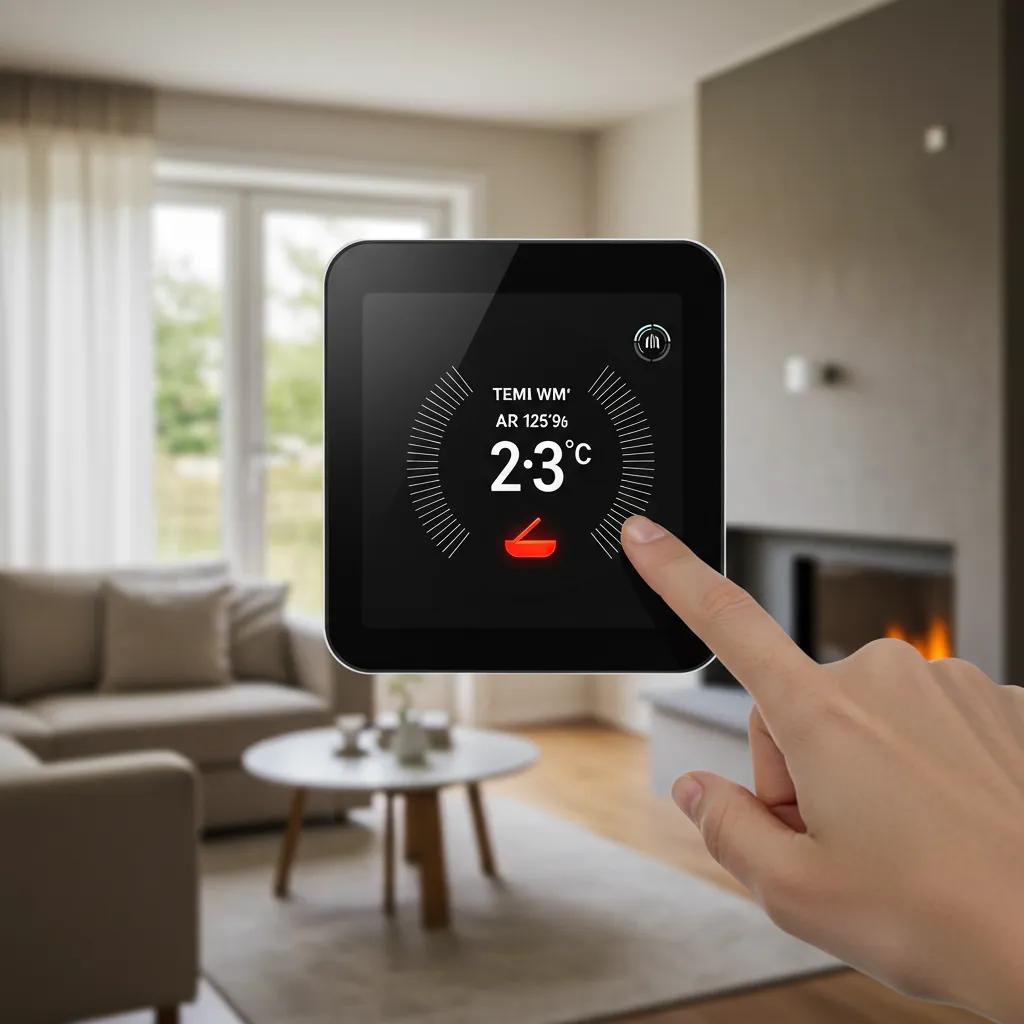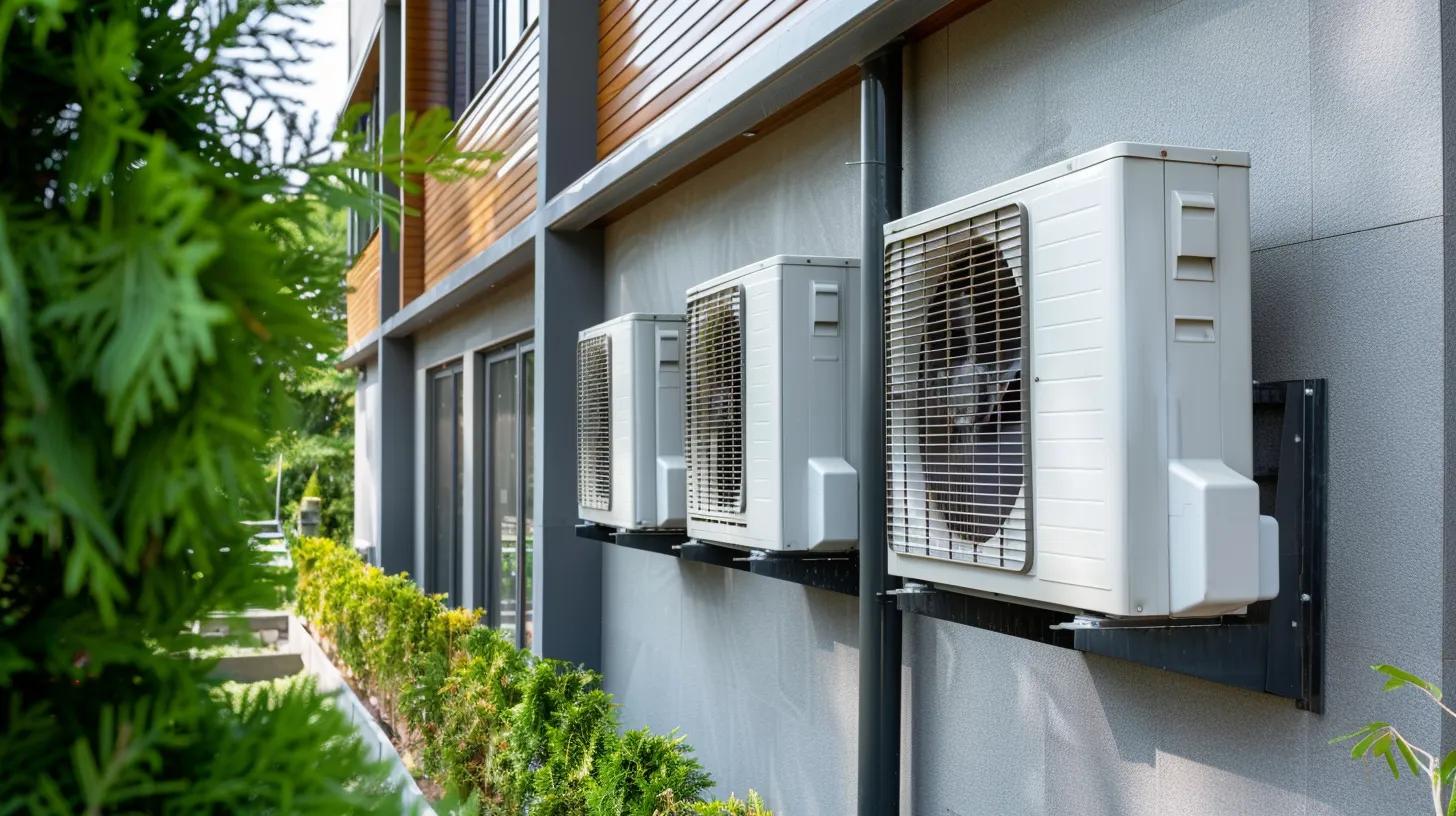Your HVAC System's Best Friend: A Comprehensive Guide to Extended Lifespan
Consistent, proactive care can help your HVAC system live well beyond its typical 15–20 year lifespan, keeping you comfortable and preventing those dreaded unexpected breakdowns. This guide to making your HVAC unit last longer dives into how routine tune-ups, smart air filter management, keeping an eye on refrigerant levels, caring for your ductwork, integrating smart thermostats, maintaining geothermal systems, and knowing when to call in the pros all work together to maximize your equipment’s life. We’ll break down each maintenance task, explain how it reduces wear and tear, and highlight the specific benefits. This comprehensive resource is designed to empower homeowners and businesses throughout Delaware and the Eastern Shore of Maryland to protect their heating and cooling investment. You’ll learn about the power of preventative maintenance, the best ways to swap out filters, how to keep refrigerant levels just right, techniques for inspecting your ductwork, strategies for energy-saving thermostats, how to care for geothermal systems, and clear signs it’s time to call in the experts—all backed by Air Doctorx Heating & Air Conditioning’s decades of hands-on experience.
How Does Regular HVAC Maintenance Extend System Lifespan?
Think of regular HVAC maintenance as a proactive check-up for your system. It involves inspecting, cleaning, and fine-tuning components to prevent wear, boost efficiency, and extend its operational life. By ensuring mechanical parts are properly lubricated, electrical connections are sound, and airflow is calibrated, maintenance reduces friction, prevents overheating, and minimizes corrosion. This combination leads to longer service intervals and helps you avoid costly premature replacements. For instance, a tune-up twice a year can catch small issues before they become big problems, laying the groundwork for reliable performance. Understanding these core principles naturally leads to appreciating the significant benefits that preventative care offers.
What Are the Key Benefits of Preventative HVAC Care?
When you commit to regular maintenance, you’ll notice several tangible improvements:
- Boosted energy efficiency thanks to clean coils and well-lubricated motors.
- A lower chance of unexpected breakdowns because we catch worn parts early.
- Extended equipment life by reducing the strain on your compressor and fans.
These advantages translate directly into consistent indoor comfort and help your system last longer by keeping it running in optimal condition.
How Often Should You Schedule HVAC Tune-Ups for Maximum Longevity?
To get the most life out of your HVAC system, aim for professional servicing at least twice a year. Schedule one tune-up in the spring, just before the cooling season kicks off, and another in the fall, before you need your heating system. This regular cadence ensures that refrigerant levels, condensate drains, and safety controls are all checked and verified for both heating and cooling modes, preventing seasonal performance dips and unnecessary equipment fatigue.
What Does a Professional HVAC Tune-Up Include?

A professional tune-up is a thorough, systematic inspection and adjustment process designed to ensure your entire system is in top shape. Our technicians meticulously clean blower assemblies, test all safety switches, calibrate thermostats, and verify the refrigerant charge. During our Summer 2025 Special, Air Doctorx Heating & Air Conditioning is offering an AC tune-up for just £88.50. This service includes coil cleaning, refrigerant verification, and performance testing to ensure your cooling system is ready to handle peak demand reliably.
How Do Maintenance Agreements Protect Your HVAC Investment?
Our maintenance agreements provide you with structured, twice-yearly inspections, priority scheduling for service calls, and discounted rates on repairs. This ensures your system receives consistent preventative care without you having to think about it. By signing up for routine services, our customers in Delaware and the Eastern Shore of Maryland secure expert attention, significantly reduce the likelihood of emergency breakdowns, and help maintain manufacturer warranties. It’s a smart approach that reinforces your system’s longevity through ongoing professional oversight.
What Are the Best Practices for HVAC Air Filter Replacement?
Swapping out your HVAC air filter is a simple yet crucial process. These filters trap airborne particles, protecting your system’s internal components and improving your indoor air quality. Clean filters reduce strain on your blower motor, optimize airflow, and prevent coils from getting clogged—all essential actions for maintaining efficiency and minimizing wear. For example, replacing a dirty filter before the busiest seasons helps maintain consistent airflow and reduces stress on your compressor.
Why Is Regular Air Filter Replacement Vital for HVAC Efficiency?
Regular filter changes prevent dust and debris from accumulating on your coils and blower wheels. Without this, airflow gets obstructed, forcing your system to work much harder. By keeping air passages clear, filters help maintain steady fan performance and reduce electrical load, which directly contributes to extending the lifespan of your system’s components.
Which Types of HVAC Filters Should You Use and How Do MERV Ratings Affect Longevity?
Here’s a quick look at common filter options and how they perform:
| Filter Type | MERV Range | Recommended Change Interval | Primary Benefit |
|---|---|---|---|
| Fibreglass | 1–4 | 30 days | Basic particle capture for light use |
| Pleated | 5–8 | 90 days | Better dust capture and airflow balance |
| HEPA | 13–16 | 180 days | Top-tier allergen filtration and coil protection |
How Often Should You Change Your HVAC Air Filter?
How often you need to change your filter depends on the type you use and how much you run your system. As a general rule, change fibreglass filters every 30 days, pleated filters every three months, and HEPA-grade filters every six months. If you live in a particularly dusty area or have pets, you might need to check and replace them more frequently to ensure filters never restrict airflow and compromise your system’s longevity.
What Are the Consequences of Dirty or Clogged Filters on System Life?
When filters get clogged, they severely restrict airflow. This can cause your evaporator coils to freeze up and your compressor to overheat. This cycle of stress significantly accelerates component failure and drives up your energy bills. By preventing these issues with timely filter replacements, you minimize system wear and preserve its lifespan.
How Can You Maintain Optimal Refrigerant Levels to Maximise HVAC Lifespan?
Managing your refrigerant involves carefully monitoring and adjusting the coolant volume to ensure efficient heat transfer and proper compressor operation. When your refrigerant charge is correct, your evaporator and condenser coils can maintain stable temperatures, which reduces motor overload and prevents premature compressor burnout. Accurate charge control is key to reliable performance from spring through fall, setting the stage for efficient operation all year long.
What Is Refrigerant and Why Is It Essential for HVAC Performance?
Refrigerant is the special fluid that absorbs heat from inside your home and releases it outside during cooling cycles (or the reverse during heating with a heat pump). Keeping the correct amount of refrigerant ensures your coils operate at their designed temperatures, which is crucial for compressor efficiency and preventing motor overheating.
How Do Low or Leaking Refrigerant Levels Affect Your HVAC System?
When your system is low on refrigerant, you’ll notice a drop in cooling power. More critically, it leads to higher compressor discharge temperatures and can cause liquid refrigerant to enter the compressor, a phenomenon known as liquid slugging. Both of these issues put immense strain on mechanical seals and motor windings. Catching low refrigerant levels early can prevent irreversible compressor damage and significantly extend your system’s service life.
When Should You Call a Professional for Refrigerant Leak Detection and Repair?
It’s time to call in the pros if you notice a sudden drop in cooling performance or see ice forming on your refrigerant lines. Certified technicians have specialized electronic leak detectors and use pressure tests to pinpoint exactly where a leak might be. Once found, they can restore the proper refrigerant charge, safeguarding your compressor’s integrity and your system’s overall longevity.
How Does Proper Ductwork Care Improve HVAC System Longevity?
Taking care of your ductwork means regularly inspecting, cleaning, and sealing it to ensure airflow remains unobstructed and system pressure is stable. Clean ducts prevent the buildup of particles that can make your blower motor work overtime, while sealed seams reduce energy loss and minimize unnecessary fan cycling. These actions protect your entire HVAC system from undue stress and wear, ultimately supporting sustained efficiency and component life.
Why Is Ductwork Inspection and Cleaning Important for HVAC Health?
Inspections can reveal hidden issues like blockages, tears, or even microbial growth within your ducts. These problems not only impede airflow but can also degrade your indoor air quality. Professional cleaning removes accumulated debris and allergens, restoring balanced air distribution and reducing the workload on your blower motor—which in turn extends the life of both the fan and the motor.
How Does Sealing and Insulating Ductwork Reduce System Strain?
When you seal leaks and add insulation to your ductwork, especially in unconditioned spaces like attics or crawl spaces, you minimize heat gain or loss. This means your HVAC system doesn’t have to run as long to reach and maintain your desired temperature. Less runtime translates directly to less wear and tear on your compressor and fans, promoting long-term reliability.
What Are Common Ductwork Problems That Shorten HVAC Life?
Some common culprits that can shorten your HVAC system’s life include disconnected duct sections, tiny pinhole leaks, and inadequate insulation. Each of these issues can cause pressure imbalances and lead to increased system cycling. Addressing these faults through professional repair and sealing restores proper airflow dynamics and prevents premature component fatigue.
How Can Smart Thermostats Help Maximise HVAC Efficiency and Extend System Life?

Smart thermostats are essentially intelligent control devices that learn your habits and adapt temperature settings based on when you’re home and even external weather conditions. By optimizing your system’s runtime and preventing it from running unnecessarily for long periods, these devices reduce start-stop cycles, help maintain stable system pressures, and lessen stress on your compressor—all features that directly contribute to a longer HVAC system lifespan.
What Features of Smart Thermostats Support HVAC Longevity?
Smart thermostats come packed with features like adaptive scheduling, remote monitoring capabilities, helpful filter-change reminders, and real-time energy usage reports. These tools empower you to maintain ideal temperature differentials, ensure you’re replacing filters on time, and quickly spot any unusual performance patterns. Each of these functions contributes to more consistent operation and reduced mechanical wear.
How Does Optimising Thermostat Settings Reduce HVAC Wear?
By setting back the temperature when your home is unoccupied, you significantly minimize unnecessary runtime. This directly lowers the cycling frequency of your compressor and fans. Furthermore, gradual temperature adjustments, rather than rapid on-off sequences, help protect motor windings and extend the overall service life of your components.
Can Smart Thermostats Detect HVAC Issues Early?
Yes, many advanced smart thermostats can monitor your system’s run times and temperature differentials. They are designed to flag anomalies, such as short cycling (the system turning on and off too frequently) or inadequate cooling. These early alerts prompt you to schedule a professional inspection before minor inefficiencies can escalate into major, costly failures.
What Are the Unique Longevity Benefits of Geothermal HVAC Systems?
Geothermal heating and cooling systems harness the stable temperatures found underground to exchange heat. This process requires less energy and subjects the system to fewer extreme temperature fluctuations compared to conventional HVAC equipment. This consistent operating environment significantly reduces compressor cycling and eliminates exposure to harsh outdoor weather, leading to system lifespans of 25–30 years—a substantial increase compared to the 15–20 years typical for traditional units.
How Does Geothermal Heating and Cooling Extend System Lifespan Compared to Traditional HVAC?
Instead of transferring heat through outdoor coils exposed to the elements, geothermal service systems use buried loops. This design protects the system from seasonal corrosion, freezing, and overheating cycles. The sealed underground loop field itself requires very little maintenance, allowing the key mechanical components inside your home to operate under stable conditions and experience considerably less stress.
What Maintenance Practices Are Essential for Geothermal HVAC Longevity?
Essential annual checks for geothermal systems focus on the integrity of the loop field, the performance of the circulation pumps, and the concentration of antifreeze in the system. Keeping loop connections secure and verifying fluid levels prevents potential system freeze-ups and protects the pumps from strain, ultimately preserving the health of your compressor for decades.
How Does Air Doctorx Support Geothermal System Maintenance and Repairs?
At Air Doctorx Heating & Air Conditioning, we specialize in WaterFurnace geothermal equipment. Our certified technicians offer expert inspections, loop flushing services, and precise refrigerant monitoring. As a Diamond Mitsubishi Dealer, we have the expertise to ensure your geothermal system receives the meticulous servicing it needs to maintain peak efficiency and achieve its longest possible service life.
When Should You Troubleshoot or Call a Professional to Protect Your HVAC System’s Life?
Knowing when to tackle a minor issue yourself versus when to call for professional help is key to preventing small problems from snowballing into major damage. Addressing unusual noises, reduced airflow, or erratic cycling promptly allows for timely corrections that would otherwise accelerate component wear. Understanding common failure symptoms helps you establish clear guidelines for when intervention is needed and works hand-in-hand with our maintenance agreements to ensure you get expert support exactly when you need it.
What Are Common HVAC Problems That Shorten System Lifespan?
Some frequent issues that can shorten your system’s life include blocked condensate drains, refrigerant leaks, worn-out blower bearings, and thermostat malfunctions. Each of these faults puts added stress on your compressors, fans, or control boards, accelerating wear and increasing the risk of expensive breakdowns.
How Can You Troubleshoot Noisy or Inefficient HVAC Units?
Start by checking and replacing any clogged air filters, clearing away debris around your outdoor unit, and verifying your thermostat settings are correct. If you hear grinding or rattling noises, this could indicate worn bearings or loose panels, guiding you toward initial fixes that can restore smoother operation before you need to schedule professional service.
What Are the Signs That Your HVAC Needs Expert Attention?
You should call a certified technician if you notice persistent leaks, detect any burning odours, see ice buildup on your coils, or if your circuit breaker keeps tripping. Early professional diagnostics are crucial for preventing minor malfunctions from turning into extensive component failures and support a proactive approach to ensuring your system’s longevity.
Conclusion
Investing in regular HVAC maintenance not only extends the lifespan of your system but also enhances energy efficiency and reduces the likelihood of unexpected breakdowns. By understanding and implementing best practices, you can ensure your heating and cooling investment remains reliable and cost-effective for years to come. Don’t wait for issues to arise; schedule your professional tune-up today to safeguard your comfort and system longevity. Explore our maintenance agreements for peace of mind and expert care tailored to your needs.


